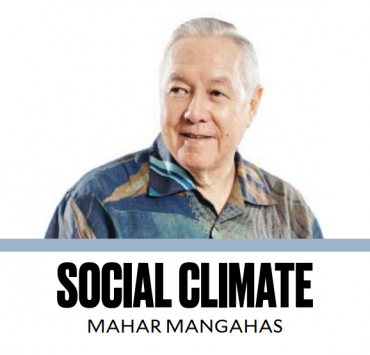A step closer to our energy transition goals

These days, when the energy demands of a growing economy on the one hand, and the sustainability demands of a changing climate on the other, seem to pull a country’s decision-makers in opposite directions, some help from private sector investors—with their financial muscle, technical expertise, and immense goodwill—goes a long way.
At the outset, this administration has committed to transform our energy landscape. According to the Philippine Energy Plan, the target is to have renewable energy comprise 35 percent of the power generation mix by 2030. This will be increased to 50 percent by 2040, and more than 50 percent by 2050.
Between now and 2050, however, a staggering amount of investments is needed to transform that energy mix goal into reality. This is because we need an additional 106,952 megawatts in capacity, translating to P35 billion, or $600 million in investments.
This situation places the Philippines at a good juncture in terms of attracting engagements. And indeed according to the Bloomberg NEF 2024 Climatescope Report, the Philippines ranks 2nd (up from 20th place in 2021) among the most attractive emerging markets for renewable energy investments.
We are the only emerging market in the Asia-Pacific region to have all of the renewable energy policies (i.e. auctions, net metering schemes, tax incentives, and clean energy target) in force.
Other countries are noticing. Just recently, a trade mission from Canada to the Philippines arrived with over 300 Canadians from more than 190 business organizations. They were senior representatives and officials from companies, associations, and government, all interested to know more about the landscape of energy transition in the Philippines.
Taking advantage of the presence of so many experts and decision makers from Canada, the Stratbase Institute, in partnership with the Embassy of Canada in the Philippines and Natural Resources Canada, held the Philippines-Canada Forum on Energy Transition. Key Canadian and Philippine public and private stakeholders explored collaboration on policy, technology, and practices for the Philippines’ energy transition.
During the forum, Department of Energy Undersecretary Rowena Guevera noted that: “The Philippines has opened the doors for investments by lifting foreign ownership restrictions in November 2022, enabling greater international participation in R&D. Incentives like tax holidays, zero-tax rates, and duty-free R&D equipment will attract more investors.”
Department of Environment and Natural Resources Undersecretary Analiza Teh said implementing the country’s Nationally Determined Contributions under The Paris Agreement will require approximately $72 billion. She further noted that “the greatest financing needs are in the energy sector, estimated to require an investment of $36.5 billion.”
Mr. Janssen dela Cruz, Market Sector Lead for Power of Prime Infrastructure, emphasized the importance of incentives for investors. Mr. Jonathan Back, Group Chief Finance Officer and Chief Strategy Officer of ACEN, said having the right policy from the start “is truly what it’s all about.”
Mr. Paul Thoppil, Indo-Pacific Trade representative of the Government of Canada, underscored that: “Canada, being a Pacific nation, wants to lean in, deepen, and strengthen relationships with countries across the region, including the Philippines. Mr. Jean-Sebastien Fabry, Global Trade Policy Director of Natural Resources Canada, said: “There is an urgency and opportunity that lies in addressing the challenges of energy transition in a complex geopolitical and economic landscape, and Canada is willing to work alongside the Philippines in advancing its energy transition.”
Canada is among the top countries that Filipinos trust the most for our national development, according to a Pulse Asia survey. As an energy transition expert, Canada is well-positioned to support the Philippines, which offers a strategic location, abundant resources, and a skilled young workforce, making it an attractive hub for foreign direct investment.
The Philippines has the potential to emerge as a global leader in clean energy. As Stratbase Group Chief Operating Officer Mr. Rupert Paul Manhit stated, “With a combination of visionary policy frameworks, abundant natural resources, and a dynamic economy, we are poised to achieve an energy mix that prioritizes sustainability. However, achieving this vision demands an unrelenting focus on creating an enabling environment—one that fosters innovation, resolves bottlenecks, and ensures the tangible realization of our shared goals.”
The next few years will be challenging in terms of achieving our energy targets, but we are confident that this government is resolute in putting in place a policy environment that is conducive to cooperation, knowledge transfer, and much-needed energy infrastructure.
—————-
Dindo Manhit is the founder and CEO of Stratbase Group.

















